Buy one, get one 50% off Use code BOGO50
Buy one, get one 50% off Use code BOGO50
The main things to keep in mind when looking for the perfect eyeglasses or sunglasses are the shape of your face and the fit of the frames. There are four basic shape categories that most of us fall into. If you don't fit into one of these categories perfectly, that's okay. These categories are not hard and fast set rules, but rather handy reference points that should guide you through finding the best frames for you.
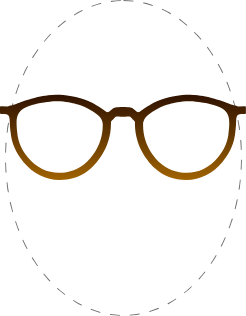
You'll want to choose frames that are larger to break up the length of your face. If you have a round face, you'll want to choose darker frames that add angles, are structured, and are slim. If you have an angular face, look for a pair of rounder frames that have more depth than width. You'll want to break up the long lines of your face, so geometric frames will work well for you.
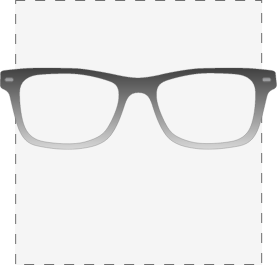
Be sure to avoid glasses with hard lines that'll make your face look too boxy. A frame that is wider than the widest part of your face will help balance the proportion of a square face. To soften the angles in your face, go for a low-profile pair of glasses. Choosing glasses that are defined at the top will draw the eye away from your jawline.
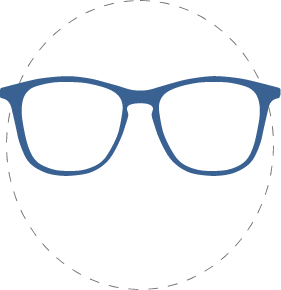
Many frames will look great on you, but you may want to avoid significantly rounded frames. Because the general rule is to go for frames that are shaped the opposite of your face shape, unswept corners are the way to go. They'll emphasize your cheekbones and make your jaw appear thinner and more angular.
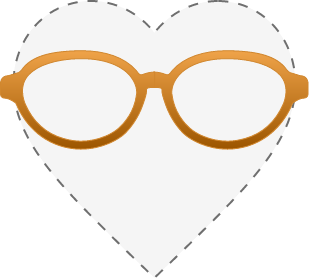
Because the width of your chin is narrower than the width of your forehead, you'll need to find a shape that balances these features. In order to minimize the width at the top of your face, choose a frame that will widen the look of your face on the bottom. Oval, rounder shapes are good for heart faces, as are glasses with a broader bottom than top. This will balance the width of your temples and chin.
Unlike shoe size or clothing size, frame size is not as simple as remembering one number. However, these numbers are universal, so understanding what they mean will undoubtedly help you find the perfect fit for you.
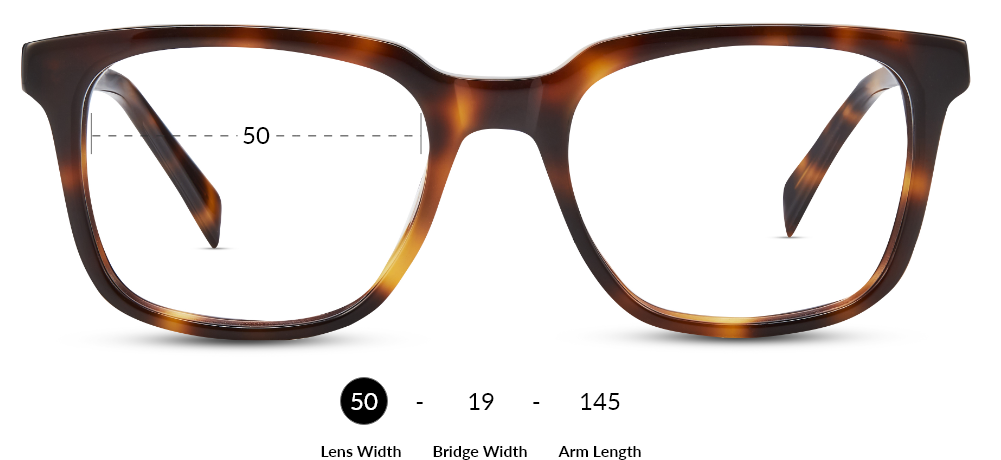
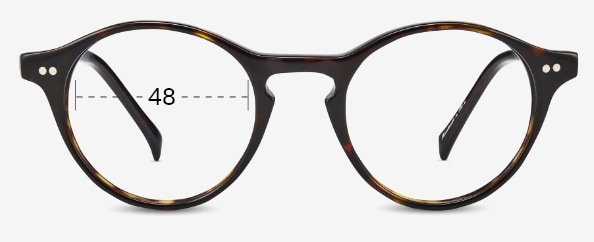
If you have a small face, look for frames in the 46mm to 50mm range. Frames like our Webster and Cypress will work well with a smaller face.

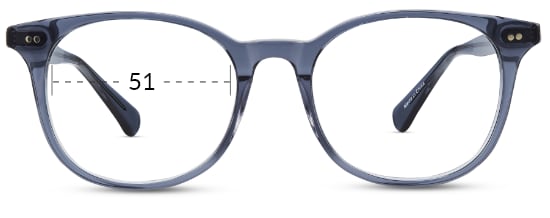
Medium faces can range anywhere from 51mm to 57mm. Our Sullivan and Sloan frames are all great fits for medium faces.

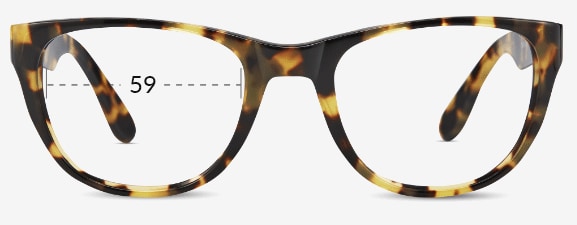
Larger faces should look for frame widths that are from 58mm to 64mm. Our Furman frame are all meant to perfectly compliment larger faces.

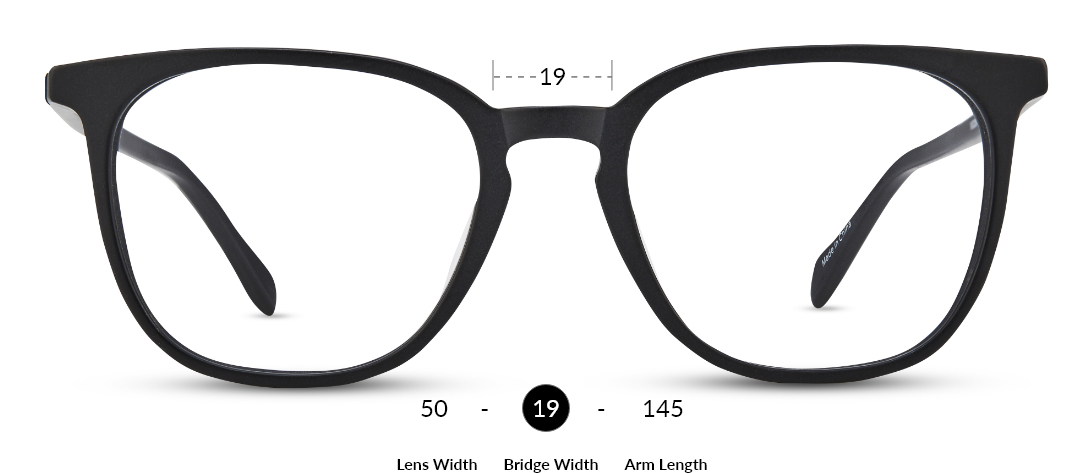
Bridge width is the second number in the string (50-19-145) and is also an important factor in determining the perfect fit of your glasses. The bridge measurement is the distance between the two lenses. If you have a narrow bridge or close set eyes, you will want this number to be lower in count (15mm to 18mm). If you have a wider bridge or wide set eyes, this number will typically fall higher (18mm to 22mm).

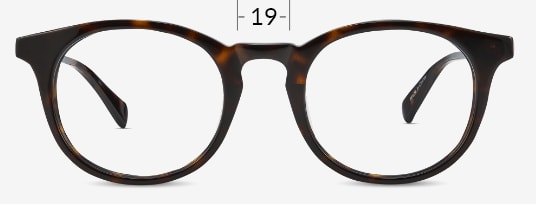
Also consider the location of the bridge in relation to the browline of the frame. Frames with bridges that are even with the browline such as our Knickerbocker or Sutton models are great if the bridge of your nose is higher on your face (above your pupils).

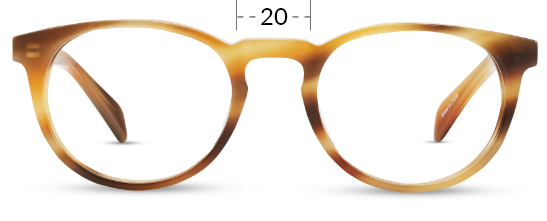
Frames with a lower bridge and a more arched browline like our Beaumont or Ashford are best if the bridge of your nose sits lower on your face.

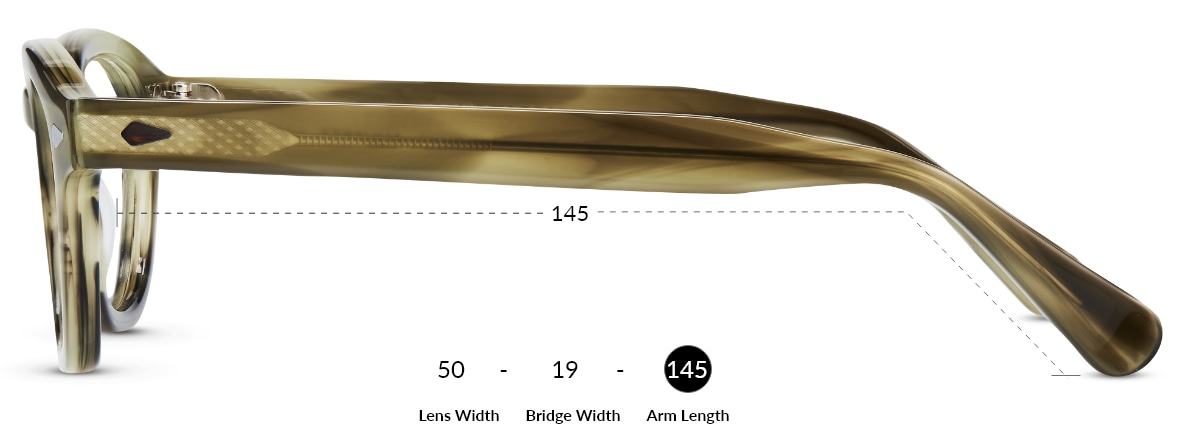
The third number in the string (50-19-145)—the temple length—is the measurement in millimeters of the 'arms' of the frame. This measurement does not vary as much as the others with 130 mm and 140m being the most common. If you have had problems with the temple length being too short, look for frames with lengths of 145mm and 150mm.

If you have any further questions, please feel free to contact us at service@classicspecs.com. Want to visit us in person? See if you live nearby one of our locations. If you're out of reach, not to worry. We can bring our glasses directly to you! Learn more about trying our glasses on at home.